Multi-Techno Integrated Solution
Multi-Techno ERP Modules
for
Business Processes
Comprehensive Guide to ERP Modules: Streamlining Business Operations
Enterprise Resource Planning (ERP) systems have become vital in managing modern businesses by integrating various operations into a single unified platform. ERP systems offer a range of modules tailored to specific functions within an organization. These modules allow companies to enhance productivity, streamline workflows, and improve decision-making processes. This guide will explore the key ERP modules and their benefits for different business sectors.
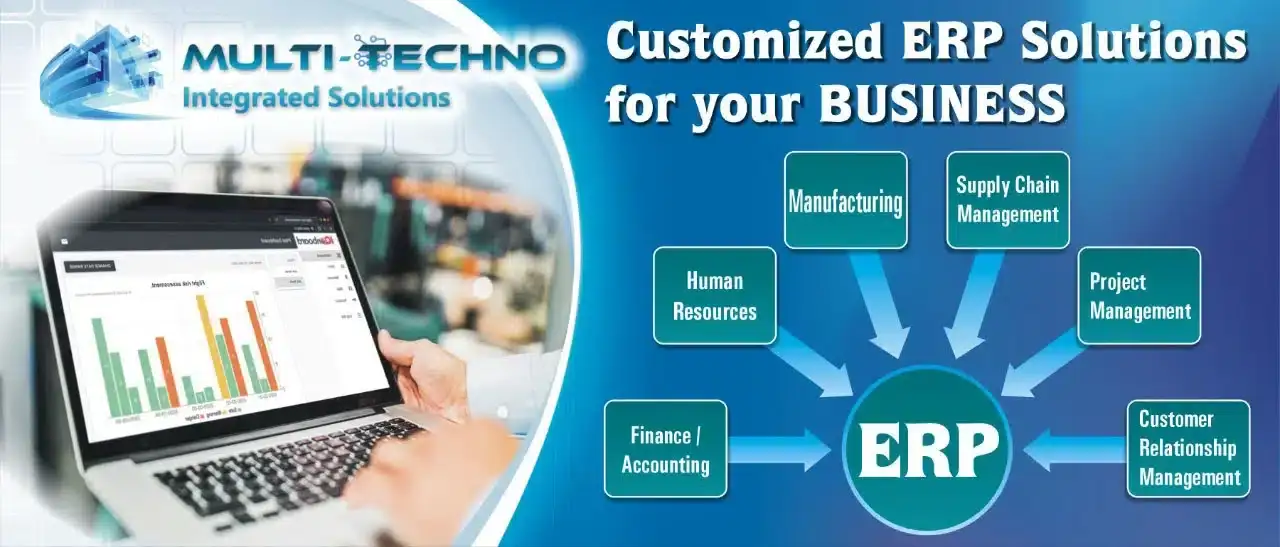
Main ERP Modules and Their Functions
1. Financial Management Module
Any ERP system’s core is its Financial Management module, which oversees all financial transactions and data. It ensures accurate financial reporting, tracks accounts payable and receivable, and supports budgeting and forecasting.
- Key Features:
- General Ledger (GL) management
- Automated billing and invoicing
- Financial forecasting and analytics
- Tax management and compliance
- Real-time financial reporting

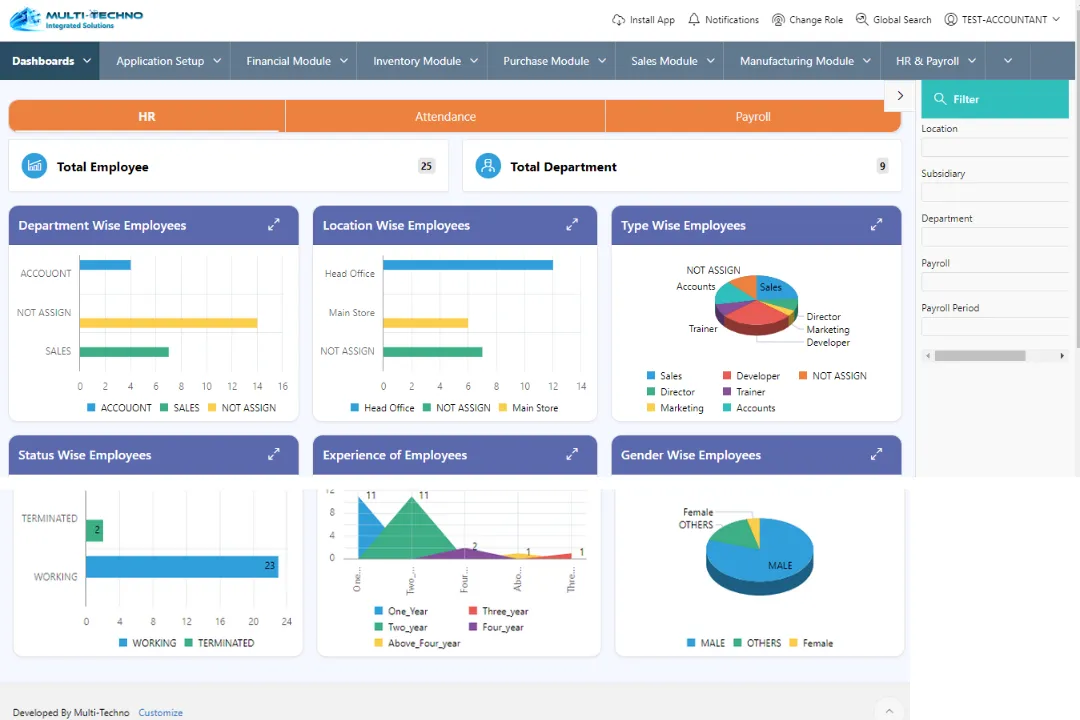
2. Human Resources (HR) Management Module
Managing the complete employee lifetime, from hiring through retirement, is the main goal of this module. The HR Management module simplifies payroll processing, employee records, and performance reviews.
- Key Features:
- Payroll management
- Employee data and attendance tracking
- Recruitment and onboarding
- Benefits and compensation management
- Performance appraisals and training
3. Inventory Management Module
Businesses may monitor and regulate their stock levels with the aid of the Inventory Management module. It optimizes inventory to avoid understocking or overstocking while integrating with supply chain operations.
- Key Features:
- Real-time inventory tracking
- Stock optimization and forecasting
- Warehouse management
- Barcode scanning and labeling
- Vendor and purchase order management

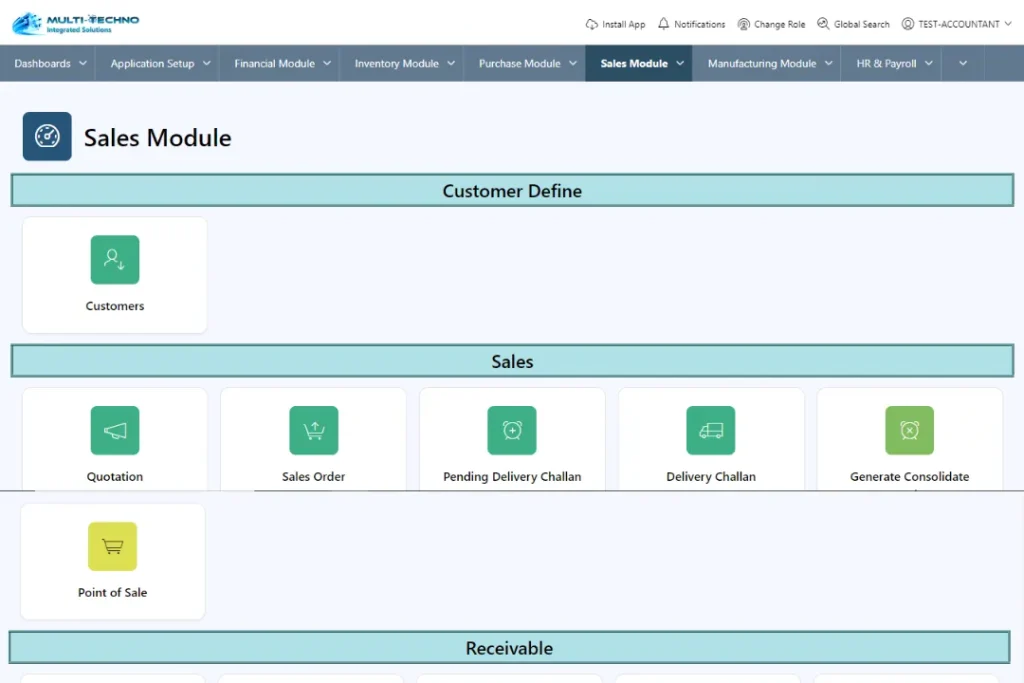
4. Sales and Marketing Module
The Sales and Marketing module assists organizations in managing customer interactions, tracking leads, and improving sales performance. It helps streamline the entire sales cycle, from lead generation to closing deals.
- Key Features:
- Customer Relationship Management (CRM) integration
- Lead and opportunity tracking
- Sales forecasting and analytics
- Campaign management
- Quotation and order processing
5. Supply Chain Management Module
A critical module for manufacturers and distributors, the Supply Chain Management module ensures smooth operations from procurement to product delivery. It tracks all stages of the supply chain and identifies bottlenecks.
- Key Features:
- Supplier management
- Order processing and fulfillment
- Shipment tracking
- Demand planning
- Supplier contract management
- Key Features:

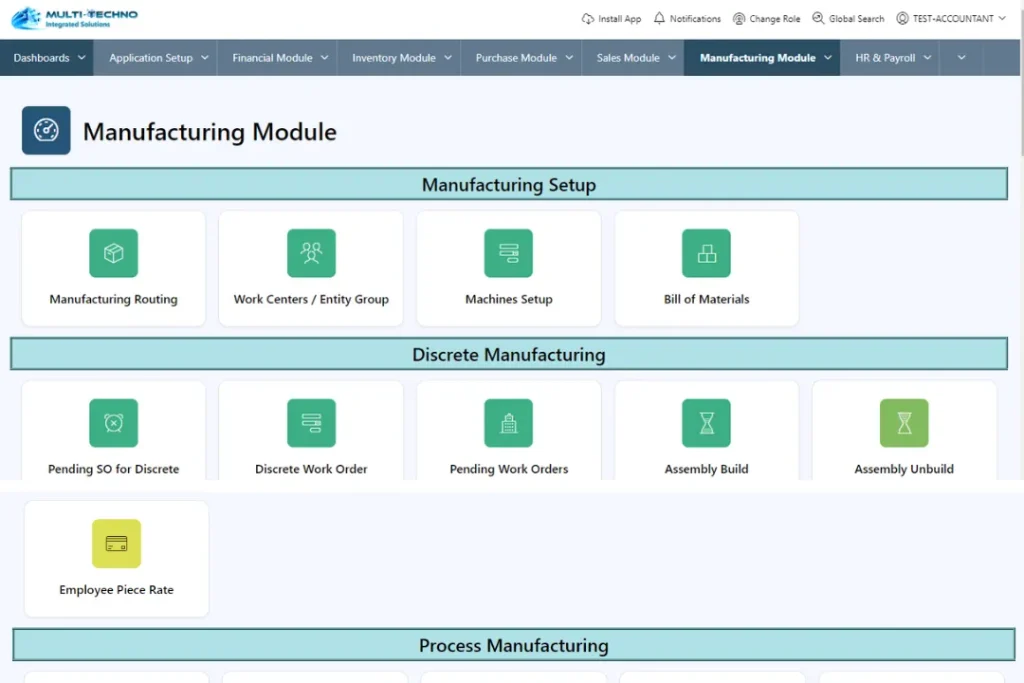
6. Manufacturing Module
For sectors engaged in production, the Manufacturing module is essential. It oversees the production process, ensuring efficiency, cost management, and high-quality outputs.
- Key Features:
- Production planning and scheduling
- Bill of Materials (BOM) management
- Quality control
- Machine and resource allocation
- Workflow automation
- Key Features:
7. Customer Relationship Management (CRM) Module
This module focuses on improving customer interactions and relationships. It supports lead generation, customer service, and data-driven insights to improve client satisfaction.
- Key Features:
- Lead and contact management
- Sales pipeline management
- Customer support and service tracking
- Customer analytics and feedback
- Marketing campaign management
- Key Features:
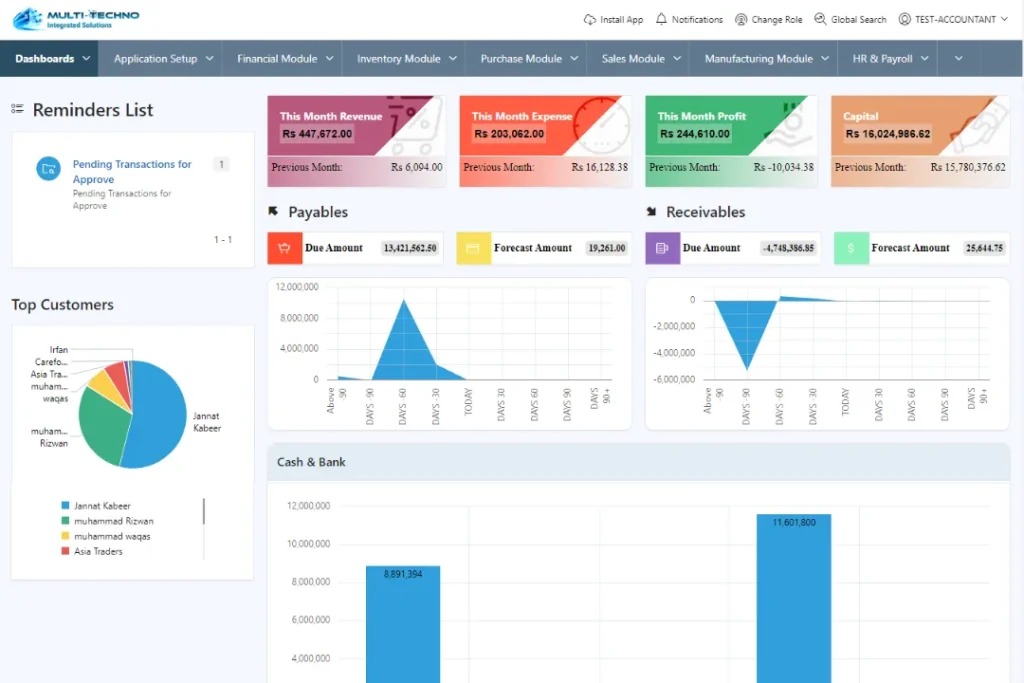
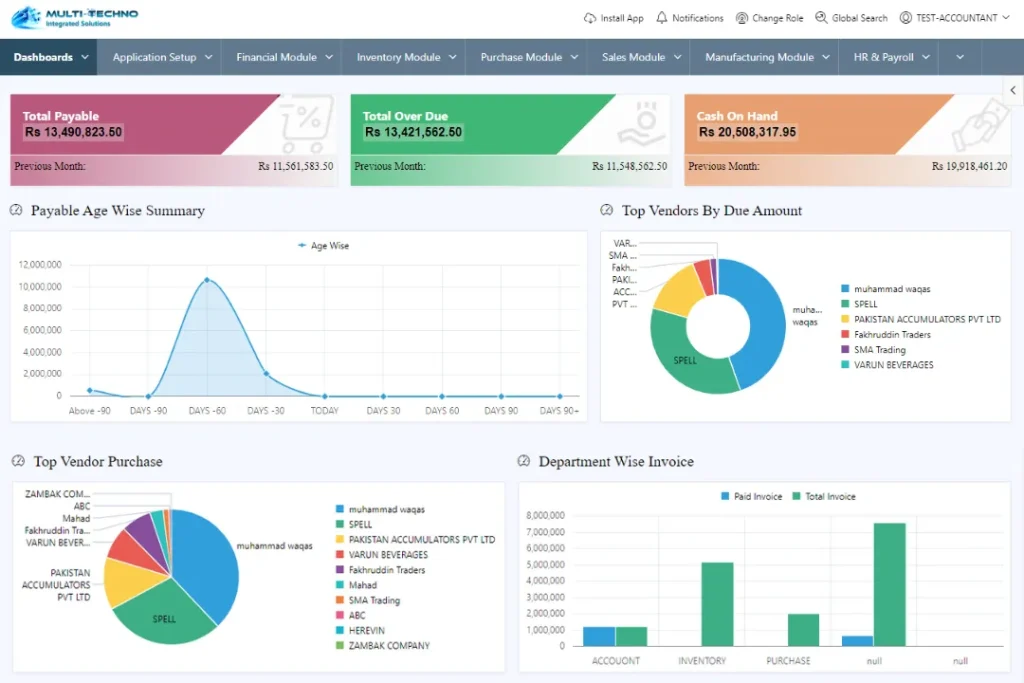
8. Project Management Module
For businesses handling multiple projects, the Project Management module provides tools to plan, track, and execute projects on time and within budget.
- Key Features:
- Task and milestone tracking
- Resource and team management
- Budgeting and expense tracking
- Gantt charts and project timelines
- Performance Analytics
- Key Features:
Benefits of Implementing ERP Modules
Each module within an ERP system plays a specific role in streamlining business operations. By using these modules, companies can achieve:
- Enhanced Efficiency: Integrated systems eliminate manual processes, ensuring smoother workflows.
- Data Accuracy: Centralized data management reduces errors and improves decision-making.
- Cost Savings: Automation and optimized resources lead to reduced operational costs.
- Improved Collaboration: Different departments within an organization can collaborate effectively through a unified system.
Conclusion
ERP modules are designed to meet the needs of diverse industries, providing flexibility and scalability. Whether in manufacturing, retail, healthcare, or services, the right ERP modules can transform your business, making it more efficient and adaptable in today’s competitive market.
Best ERP Cloud Software System
About Us
ERP software and systems are designed and implemented by Multi-Techno, a registered company. By combining data from financials, sales, CRM, inventories, and operations, businesses can increase productivity, make better decisions, and increase profitability with the aid of our ERP System, a single, integrated software platform.
Quick Links
Contact Us
Office # 100, 101 Second Floor Kohinoor 1, Faisalabad, Pakistan
